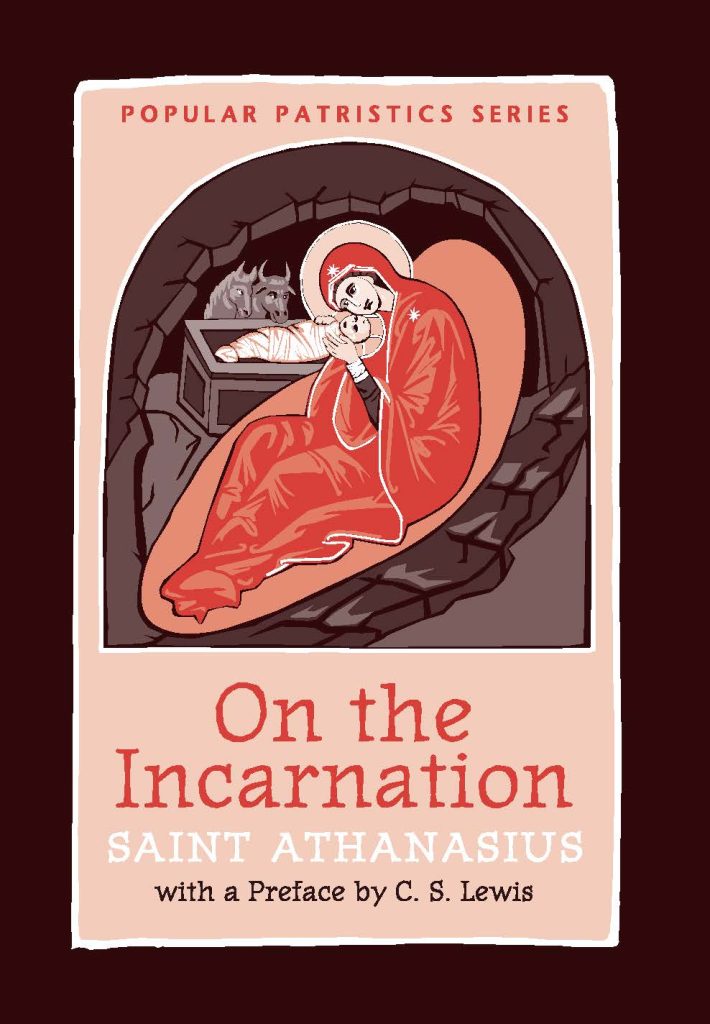I am excited about beginning our study of St. Athanasius’ On the Incarnation. (An online version of the translation with C.S. Lewis’ preface is HERE.) This week we are going to be reading through C.S. Lewis’ preface in defense of reading the Patristics (old dead guys) and Chapter 1 – Creation and Fall comprising sections 1-5 of the book.
In his preface, Lewis states that a “mistaken preference for the modern books and this shyness of the old ones” is rampant within the study of theology. He sets forth three reasons to read the old books. First, any book should be tested against the standard of normative Christian thought, and the only means to acquire the standard is through the old books that have survived scrutiny down through the ages. Second, Lewis argues that every age has its own outlooks and assumptions so that even bitter enemies have common assumptions. The only means to escape contemporary assumptions is to read the old books. Finally, Lewis says that through the old books, we can overcome the present divisions within the Church and see the fullness of mere Christianity. Please read through his preface and see if you agree with his points.
For a more in-depth overview of the book, I have attached the introduction of the Very Rev. John Behr. Fr. Behr is the Dean of St. Vladimir’s Orthodox Seminary and its Professor of Patristics. This introduction provides an overview of Athanasius’ previous work “Against the Gentiles” and how these two works come together to present a unified apology for the cross. We will not be discussing Behr’s introduction.
Athanasius begins his book with an account of the Creation and Fall. For Athanasius, we can only understand the importance and necessity of the Incarnation if we understand that the same agent that created the world (the Logos) is that which becomes incarnate in Jesus of Nazareth. God creates the universe ex nihilo (out of nothing) through the Word which orders and illuminates the creation. The height of the Creation is human beings who are made in the very image of God, who share in the rational power of the Word, and who were intended to be incorruptible. We, however, have turned away from God, and thereby have brought corruption leading to death. “Evil is non-being, the good is being” and therefore in our present fallen state human beings will revert back to the non-existence that preceded creation. That is the problem that Athanasius diagnoses within this first chapter with the question of how can we return to that perfection that existed before the Fall.
For further reading and a better understanding of Athanasius’ argument, please read the Biblical accounts of creation in: Genesis 1-2, Wisdom 2:21-24, John 1:1-18, Colossians 1:15-19, and Hebrews 11:1-3.
Dinner is a 6. The menu this week is lasagna. Hope to see you here, and please feel free to bring a friend or a neighbor with you.
Come now, blessed one and true lover of Christ, let us, with the faith of our religion, relate also the things concerning the Incarnation of the Word and expound his divine manifestation to us, which the Jews slander and the Greeks mock, be we ourselves venerate, so that, all the more from his apparent degradation, you may have an even greater and fuller piety towards him, for the more he is mocked buy unbelievers by so much he provides a greater witness of his divinity, because what human being cannot understand as impossible, these eh shows to be possible.

